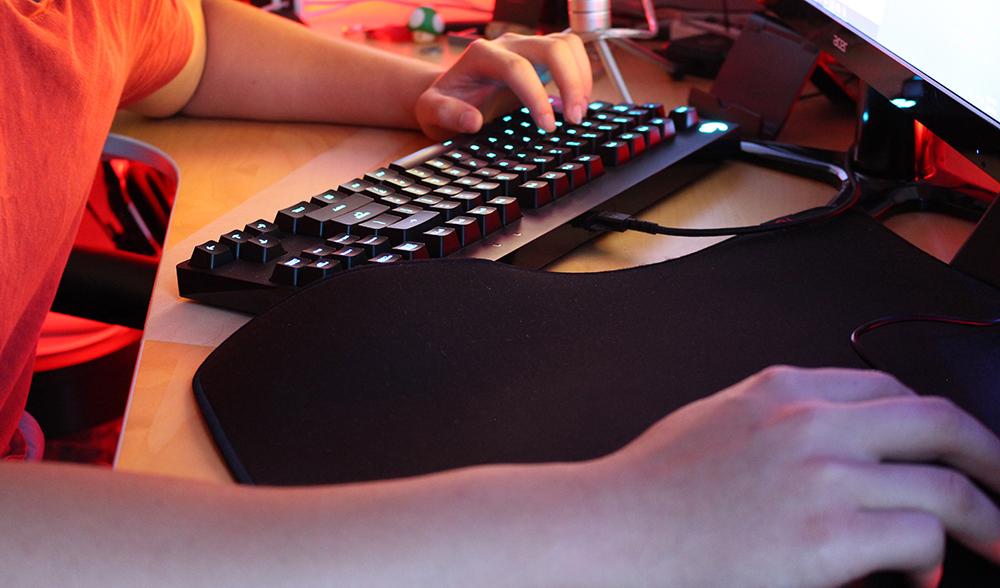As lasers and explosions fill the frame and colorful characters brawl, sophomore Aaron Cacho remains focused. The only sounds audible beyond his headphones are the clicking of a mouse, the clacking of a keyboard and the occasional callout to coordinate with a teammate.
The battle waging on Cacho’s screen is part of Overwatch, a team-based online video game where two teams of six are pitted against each other. The goal is to best the enemy team by either capturing a point or escorting a vehicle across the map. Each player can choose to play one of 27 characters: cowboys, hackers, archers, knights and more.
Cacho is a member of Paly’s Overwatch team, which competes with some of the best high school teams in the country. The team won the 2017 winter semester of the High School League, a prominent national Overwatch bracket featuring 34 of America’s best teams.
“You can’t slack off, and we’re not just having fun online,” says the team’s co-owner, who goes by “Sher” online. His real name has been omitted due to his concern about judgment from the community. “There’s money that goes into this [tournament] and there’s money that needs to come out.”
The team began two years ago as a group of friends just playing competitive games together, but has grown rapidly, expanding to five teams over four different video games of which the Overwatch branch is most developed. The team is coached by an Overwatch player from Carnegie Mellon University, who watches recordings of Paly’s matches to give feedback and researches opposing teams to devise the best strategy to use against them.
“You can’t slack off, and we’re not just having fun online. There’s money that goes into this [tournament] and there’s money that needs to come out.”
-Sher, Overwatch Team co-owner
Sher credits a portion of the team’s success to its location in Silicon Valley.
“A lot of teams are not as fortunate to have as many talented players at their school,” Sher says. “Just having a school that has so many video gamers … that’s definitely encouraging.”
Playing under pressure
“When we first started posting our scores [on InFocus] I noticed that there were a couple people that were reacting like ‘Really, esports?’” says team member and sophomore Skyler Dittmar. Sher has similar concerns about esports’ image.
“The stigma was kind of like, ‘If you’re a gamer, that means you must be that that guy eating the chips in front of the computer,’ and ‘He’s just lazy, he’s not doing anything,’” Sher says.
However, Jacob Wolf, an ESPN esports journalist, says perceptions of esports among the media are improving.
“I’ve seen some [media outlets] have some terrible takes on esports, while others like ESPN, SportsBusiness Journal, The New Yorker, etc. accept it and cover it as normal,” Wolf stated.
Some players have been looking ahead to collegiate-level Overwatch. According to ESPN, over 60 colleges now have varsity esports programs. And after its victory in the winter season of the High School League, the team gained attention from college-level scouts looking to recruit for their teams. Wolf believes that lower-level leagues will help develop esports at the professional level.
“The biggest thing that high school and collegiate esports will do is allow young, aspiring esports professionals to learn in a controlled environment and nurture those team skills at an earlier age,” Wolf stated.
Despite the discouraging reactions, Sher is confident that their team is gradually gaining more respect.
“Some people laughed at it … [but] they see that we’re actually putting time into it, some of them watch the matches, even. A lot of people have become more interested in how they can join,” he says.



